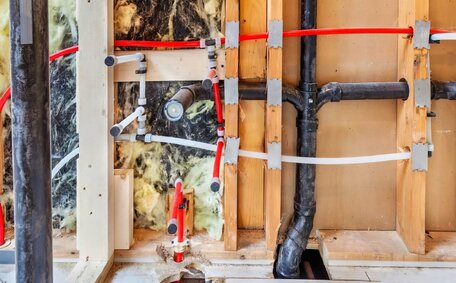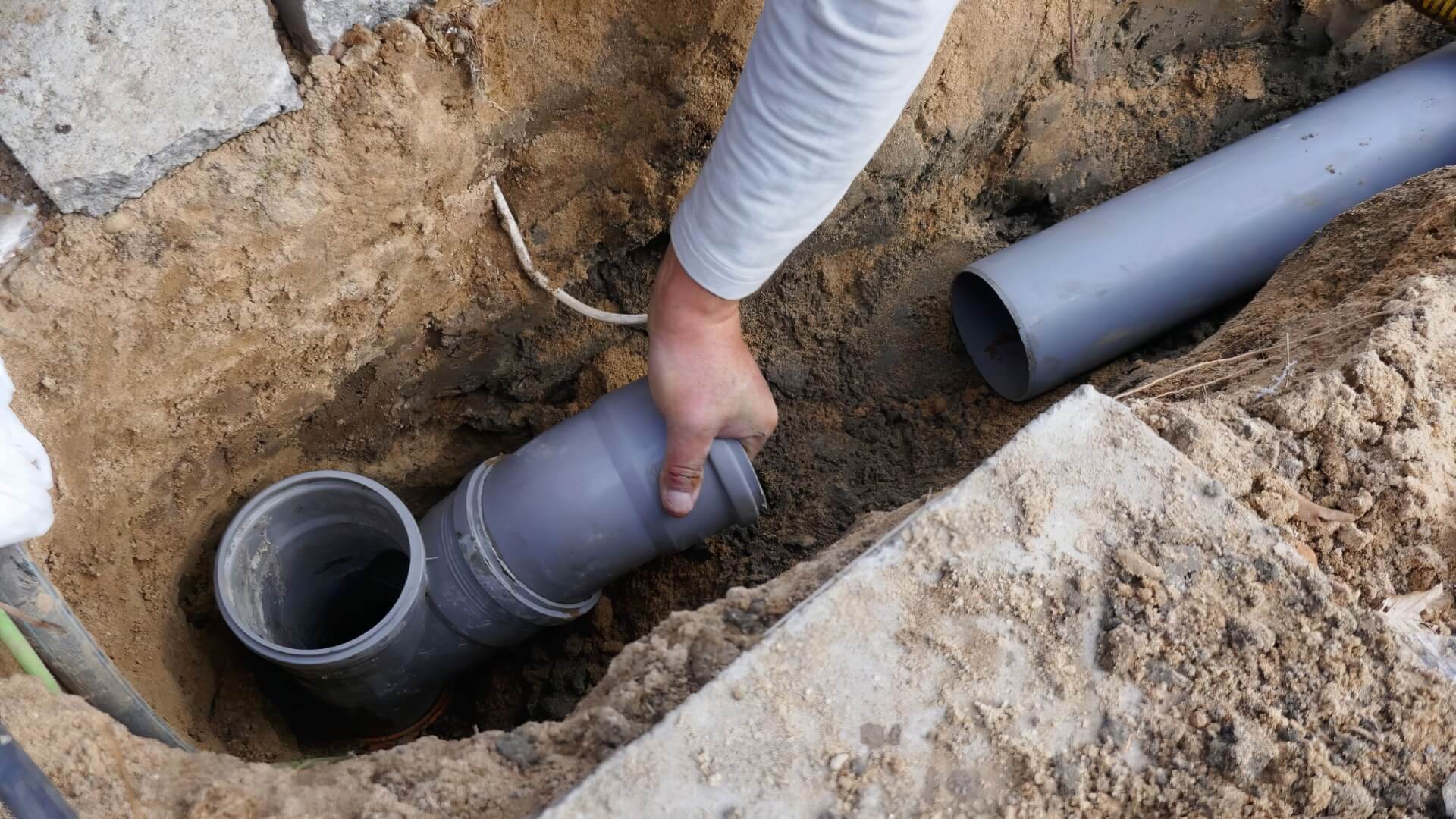What is the Difference Between Natural Gas and Propane? Overview
Two common fuels that power our homes and businesses are natural gas and propane.
The fundamental difference between natural gas and propane is their chemical makeup: natural gas is mainly methane, and propane is a propane and butane mix. Propane has a higher energy content per unit of volume than natural gas.
Regarding storage and delivery, natural gas is supplied through pipelines, eliminating the need for storage tanks, whereas propane is kept in pressurised tanks and trucked in.
Comprehending the differences between natural gas and propane is crucial for Penrith households and businesses to choose the most suitable fuel option based on efficiency, cost, safety, and convenience.
Chemical Composition and Source Materials
Natural gas and propane differ significantly in their chemical composition.
Natural gas forms over millions of years from decomposed organic matter and is typically found in underground reservoirs close to oil deposits.
While natural gas primarily consists of methane (CH4) at 90-95%, it also includes smaller amounts of other hydrocarbons like ethane, propane, and butane.
Propane, a byproduct of natural gas processing and crude oil refining, is composed of 3-carbon alkane hydrocarbons, primarily propane (C3H8) and butane (C4H10).
Propane makes up the bulk between 60-100% while butane constitutes the remainder. When sourced naturally, the term for propane is gas lpg, more colloquially known as liquefied petroleum gas.
In summary, natural gas is mainly methane, and propane primarily consists of propane and butane molecules; both are nonrenewable gas sources. Understanding their chemical makeup and production methods is key to selecting the appropriate gas used for heating, cooking, and other applications around the home or business.
Energy Content and Efficiency
Propane has a higher energy content per volume, with one cubic foot providing about 2.5 times the energy (measured in BTUs, or British Thermal Units) of an equivalent amount of natural gas.
Propane contains about 2500 BTUs per cubic foot, significantly higher than natural gas’s 1000 BTUs. This characteristic of propane contributes to its energy efficiency, rendering it a more efficient fuel source by volume.
It’s essential to distinguish the different requirements for propane and natural gas appliances, as they are designed for the specific BTU input associated with natural gas. Modifying burner nozzles and orifices may be necessary to ensure proper combustion with propane. Consult a licenced technician before converting any appliances.
Due to its higher energy density, propane requires less storage volume than natural gas, which is an important factor for tanks and piping infrastructure. For households and businesses weighing up the two gas options, the efficiency differences can impact cost and usage.
Cost Comparison Between Propane and Natural Gas
When looking at expense, both propane and natural gas have associated costs that should be factored in when making a choice between the two fuel sources.
In terms of upfront installation, natural gas often requires significant investment into pipelines and connections to link the distribution network to a home or business.
The portable nature of propane typically results in quicker and more cost-effective installation of off-grid tanks and connections. Natural gas pipelines, while convenient, demand ongoing maintenance and safety inspections, potentially incurring high costs over time.
Considering per-BTU energy content, natural gas is typically cheaper than propane. Still, market trends, taxes, and delivery fees among other factors can influence the cost difference.
In 2023, natural gas cost around $20 per GJ for the average Sydney household while propane averaged $28 per GJ.
Ultimately, the cost difference between natural gas vs propane can vary significantly depending on specific needs. Consulting with qualified experts such as Penrith Plumbing is essential for Sydney residents to fully understand the costs and make an informed decision.
Environmental Considerations
When it comes to environmental impact, there are pros and cons to both natural gas and propane. However, propane is generally considered the more eco-friendly option.
Made up mostly of methane, a potent greenhouse gas with an impact 84 times greater than carbon dioxide over two decades, natural gas leaks and combustion are significant climate change contributors.
Propane, on the other hand, does not directly contribute to greenhouse gas emissions to the same extent. Its combustion produces negligible amounts of sulphur dioxide and nitrogen oxides compared to other fossil fuels. Propane is also non-toxic and won’t contaminate land or water resources.
As we shift to sustainable energy, both natural gas and propane present cleaner-burning options compared to traditional fossil fuels. Consultation with sustainable energy experts like Penrith Plumbing can help determine the best option.
Safety Protocols and Leak Detection
When it comes to safety, there are some key differences between natural gas and propane that are important to understand.
Owing to natural gas being lighter than air, whereas propane is heavier than air. This affects how leaks can behave - natural gas leaks tend to dissipate into the atmosphere, while propane can collect in low spots, creating flammability and suffocation risks. Propane tanks are also pressurised, introducing potential safety hazards if damaged or incorrectly handled.
That said, both fuels are intentionally odorized with a rotten egg smell to help detect leaks quickly. If a gas leak is suspected, evacuate the area immediately and contact emergency services. Attempting to locate the leak yourself can risk explosion.
In terms of usage, propane’s pressurised storage often requires more safety equipment like gauges and excess flow valves. Consult licenced professionals like Penrith Plumbing to ensure all appliances and gas systems are up to code.
While both propane and natural gas carry risks if mishandled, following basic precautions and working with qualified technicians can ensure safe, reliable gas usage for Sydney homes and businesses.
Storage and Delivery Methods
When it comes to storage and delivery, natural gas and propane utilise very different systems.
Propane is stored in custom-designed steel tanks at the point of use.
Natural gas requires no storage at the user’s property, saving space and reducing maintenance.
Homes without natural gas pipeline access use propane tanks, from few to several thousand cubic feet. Smaller tanks need frequent refills, while larger ones require just one or two a year, albeit with greater storage space.
While natural gas is transported via extensive pipeline networks, propane is distributed nationally in portable cylinders by truck, offering advantages in areas without pipeline access.
Understanding how these gases are stored and delivered to homes and businesses allows households to determine the most practical fuel source based on their location and requirements.
Household Usage Considerations
When deciding between propane vs natural gas for household usage, Penrith residents have several key considerations to evaluate:
Convenience and Accessibility
Natural gas provides on-demand supply for properties with pipeline connection, negating tank refills. Conversely, the higher cost of pipeline expansion makes delivered propane tanks a more accessible option for rural settings.
Appliance Requirements
Most household appliances can run on either natural gas or propane, but may require minor converter kit installations for the alternate fuel. Consult technicians to ensure safe conversions. Dual-fuel compatible models are also available.
Upfront and Operating Costs
Although propane tends to be pricier per energy unit, natural gas incurs considerable initial hookup fees, with variable ongoing expenses such as seasonal heating. A thorough cost-benefit assessment is essential.
Environmental Factors
Eco-aware homes may prefer propane for its cleaner burn, producing fewer carbon monoxide and greenhouse gases, unlike natural gas, which has a more pronounced effect on climate change.
It’s important to evaluate factors such as convenience, expenses, environmental considerations, and appliance compatibility to determine the superior gas option for your home, with expert advice available from Penrith Plumbing.






